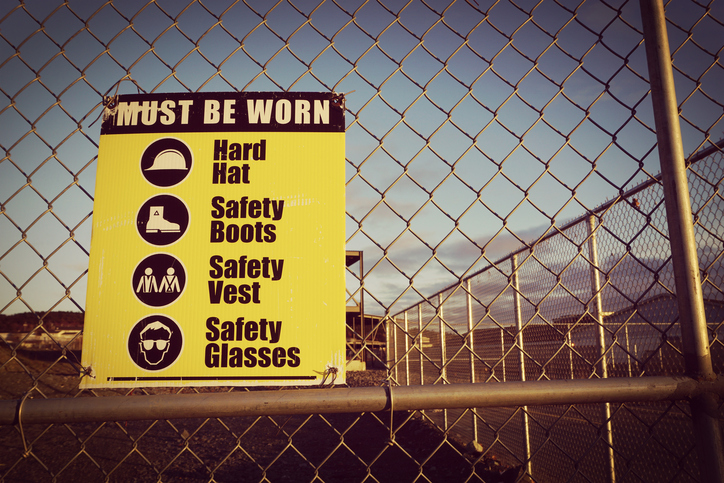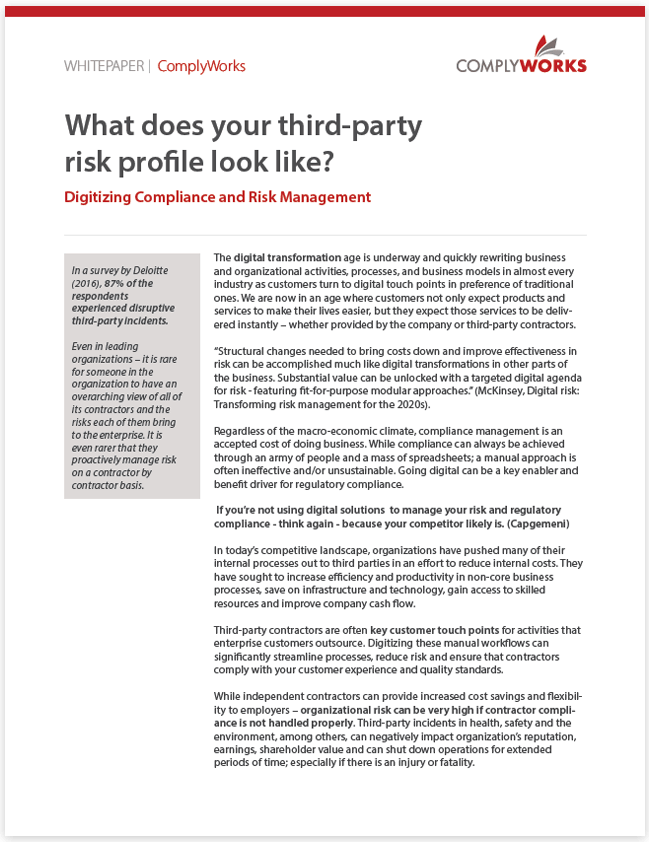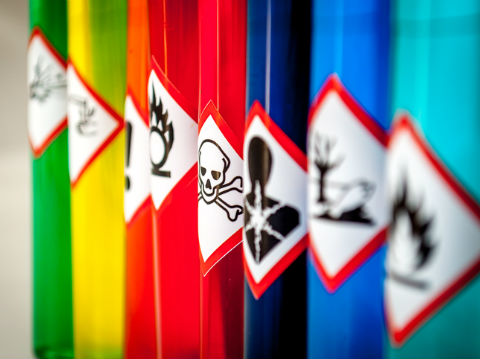
You are enjoying a Monday morning coffee when suddenly you are hit with a rude awakening. It’s your construction site foreman calling—and it doesn’t sound good.
While on duty at your worksite, an employee from a third-party cement finisher tripped over a piece of equipment and is now in the hospital with a broken ankle. ‘Not such a big deal’, you think. But when you find out the contractor is not covered by worker’s compensation in your province and the equipment they tripped over hadn’t been properly stored, the panic sets in. ‘How could we have hired them without verifying their workers' compensation coverage?!’
It’s critical to ensure your third-party vendors are compliant with local laws, covered by insurance and have done their due diligence to train staff on health and safety policies. Here are five questions you should ask your contractors to mitigate risks and avoid accidents:
1) What health and safety training do their employees receive?
As the first line of defence against risk, ensure your contractors have health and safety training protocols in place. Request a copy of the program and documentation that proves each employee has completed the training. Refer to OSHA’s Recommended Practices for Safety and Health Programs for guidelines on what should be included.2) What type of insurance and/or workers' compensation coverage does the company have?
The type of insurance your contractors need will vary from job to job. Identify what you require from a contractor by assessing the industry and worksite. Will they need automotive insurance? Commercial general insurance? Umbrella insurance? Always ask for a copy of the contractor’s insurance certificate and verify that it is valid. Check the expiration date, that the company name matches the insurance document and that the coverage geographically includes the worksite you’re employing them for. Once you’ve verified the information, keep a copy for your records.3) Does the company have a formal procedure for checking the qualifications and certifications of it's staff members?
From commercial driver’s licenses for trucking companies to CPR certifications for electricians, employers should maintain accurate records of their staff and flag employees who have expired mandatory certificates. Working with contractors who keep these records up-to-date adds an extra layer of security for you.4) Does the company have ISO certifications?
The International Organization for Standardization (ISO) creates documents that provide specifications and guidelines that can be used to ensure products and processes are held to a standard. Participating organizations can acquire ISO certifications as proof of diligence in several health, safety and environmental (HSE) categories. For example, contractors in the oil and gas space may want to obtain an Environmental Management Certification under ISO 14001. If given the choice, consider hiring contractors that are ISO certified versus those who are not.5) What are the company’s health and safety statistics?
According to OSHA, employers with more than 10 employees are required to keep detailed records of workplace injuries, illnesses or fatalities. Upon request, your third-party contractors should be able to provide a summary of incidents including the number of fatalities at the company per year, lost time injury cases, medical aid cases, injury frequency and other related statistics.The nature of the work and the risk associated with your industry may determine the HSE standards to which you hold your contractors. Want a better idea of what your third-party risk profile looks like? Download the whitepaper to learn more.







